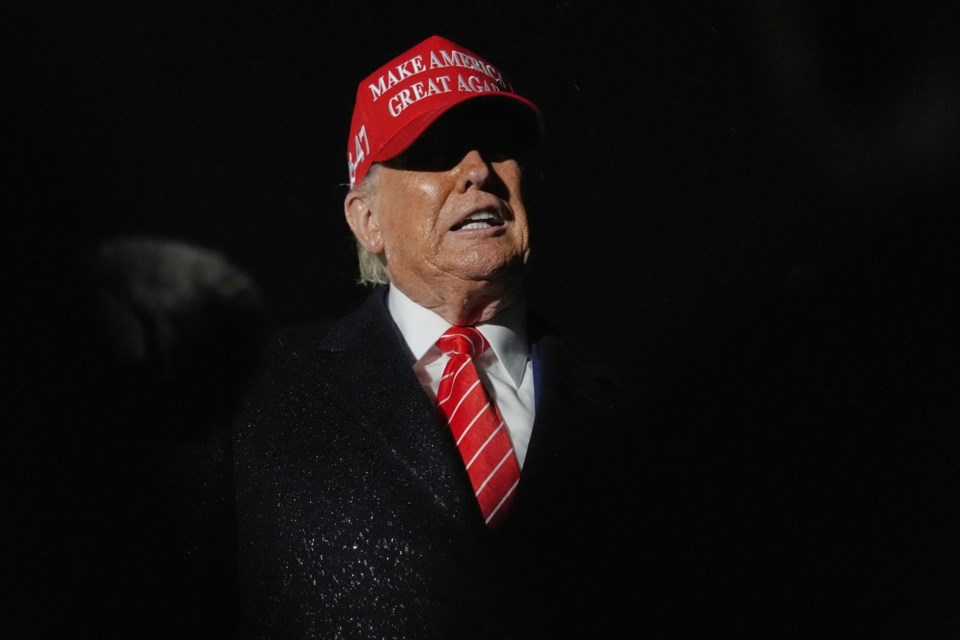OTTAWA — Faced with a trade war they didn't start, Canadians are divided on whether they see the United States as an "enemy" or an "ally," a new poll suggests.
The Leger poll, which was conducted online and can't be assigned a margin of error, surveyed more than 1,500 people between May 30 and June 1.
Almost a third of respondents said they view the U.S. as a "neutral country," while 27 per cent said they consider it an "ally" and 26 per cent see it as an "enemy country."
Just over a third of men said they consider the U.S. an ally, compared with one in five women. Almost 30 per cent of women said they view the U.S. as an enemy, compared with 22 per cent of men.
Older Canadians, those at least 55 years of age, were more likely to consider the U.S. an enemy than younger Canadians. Regionally Albertans were most likely to consider the U.S. an ally while Ontarians and British Columbians were most likely to see it as an enemy.
The difference is starkest between political party supporters, with 44 per cent of Conservative supporters saying they view the U.S. as an ally, compared with 17 per cent of Liberal supporters and 12 per cent of NDP supporters said the same.
Comparatively 16 per cent of Conservative supporters said they view the U.S. as an enemy country, while 36 per cent of Liberal supporters and 41 per cent of NDP supporters said the same.
U.S. President Donald Trump signed an executive order Tuesday to double his levies on steel and aluminum to 50 per cent. He claimed the measure will protect the country's national security and domestic industries.
Prime Minister Mark Carney has said his government will need to take "some time" to craft a response to the increased U.S. tariffs.
The number of Canadians that report seeing the U.S. as an enemy country has dropped by six points since mid-March. At that time, 32 per cent of survey respondents told Leger they viewed the country as an enemy.
The number of Canadians that view the U.S. as an ally also decreased by two percentage points since March, from 29 to 27 per cent, while the number that view it as a neutral country increased by six percentage points, from 24 to 30 per cent.
Andrew Enns, Leger's executive vice-president for Central Canada, said that, broadly speaking, the patterns haven't changed much since the organization asked the question in February — when 27 per cent of respondents said they viewed the U.S. as an enemy and 30 per cent said they viewed it as an ally.
Enns said the decline in the number of people saying the U.S. is an enemy likely reflects the overall sentiment on tariffs.
"It's still obviously there and, you know, clearly now we're dealing with higher steel tariffs, but the commentary coming from the White House and the Trump administration seems to have dissipated a bit and that's probably helping just tone things down," he said.
Enns said Canada also has a new prime minister with a mandate that might "take the edge off things."
"I think that just keeps things more at a moderate level, and I think that reflects in people maybe feeling a little less threatened by the U.S.," Enns said.
Enns said political and business leaders have also sent a consistent message that the U.S. remains an important trading partner. He said that may encourage Canadians to believe there's a way to "work things out."
The polling industry's professional body, the Canadian Research Insights Council, says online surveys cannot be assigned a margin of error because they do not randomly sample the population.
This report by The Canadian Press was first published June 5, 2025.
Catherine Morrison, The Canadian Press



